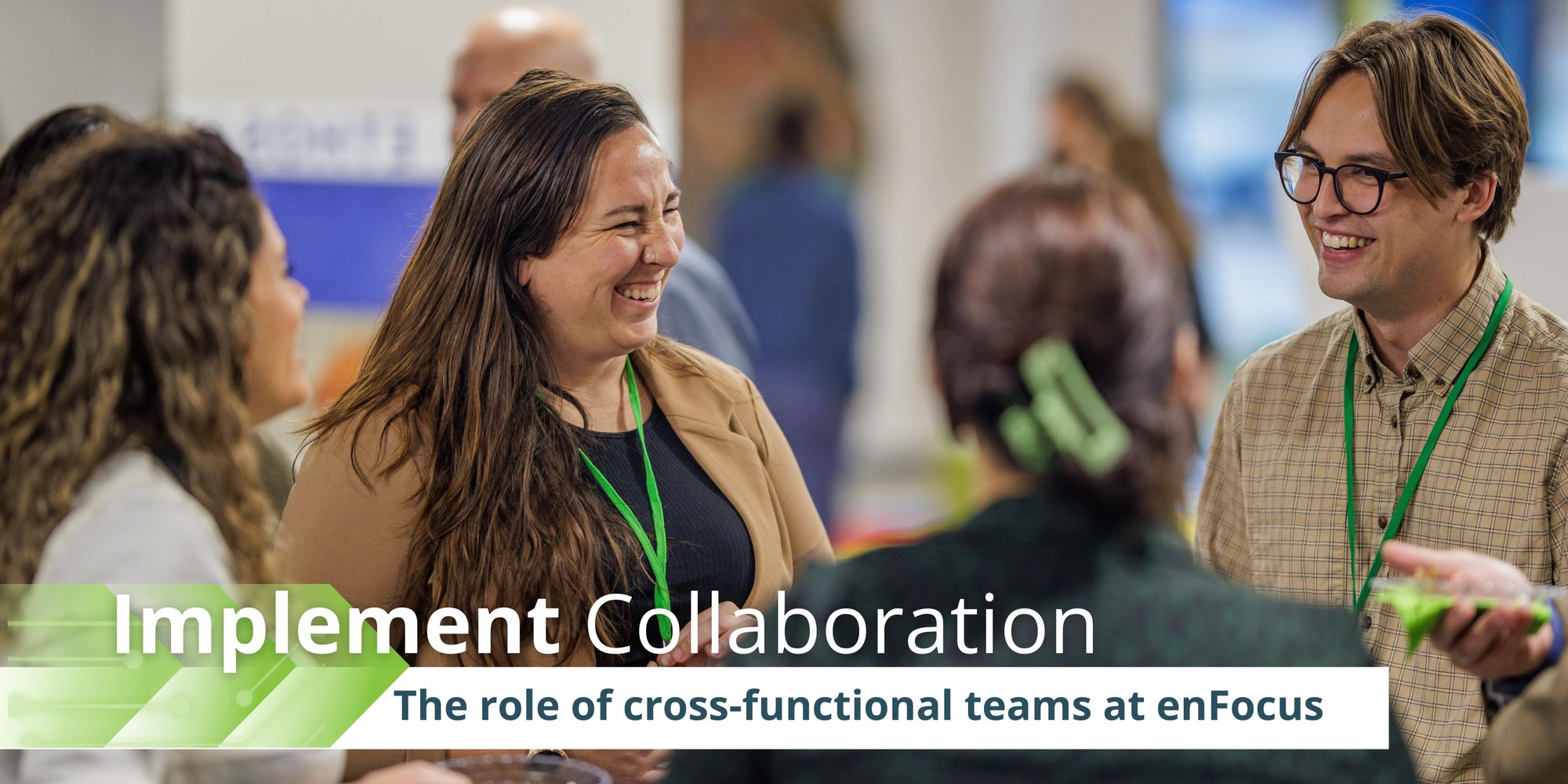Teamwork at enFocus goes beyond mere cooperation; it’s the collective power to harness our diverse talents to make a shared vision a reality. Over the past year, we have introduced internal “pods” where Fellows from different projects converge to exchange knowledge, experiences, and best practices. Guided by a project manager outside their own team, Fellows explore how to apply newfound insights as a cross-functional team that embraces new techniques, hones skills, and tracks project progress. The process not only fosters innovation, but empowers Fellows to support each other by leveraging their individual strengths.
One example of cross-functional collaboration includes second-year Fellows Alexia Velazquez and Marty Kennedy assisting first-year Fellow Paxton Dodd. Marty and Alexia have had extensive event planning experience coordinating Save-a-Life, a mass CPR training event for local eighth graders. Likewise, Paxton has been diligently working with the South Bend-Elkhart Regional Partnership to coordinate and promote their Student Immersion Experience event. When Paxton faced hurdles working across multiple teams and stakeholders, Marty and Alexia suggested strategies that promote team ownership and responsibility.
“I know the change is small,” says Paxton, “but implementing strategies like follow-ups go a long way in making sure project timelines keep on track. Although the advice may seem straightforward, I recognize its value and intend to apply it consistently in my future projects and professional experiences.”
Alexia adds to Paxton’s point by sharing, “Implementing pods at enFocus have provided beneficial opportunities to share what we have learned with each other. Bringing together folks who have been on different projects provides a new perspective and skillset to the conversation. The pods are a great example of what the broader culture is like at enFocus.”
Another example of cross-functional collaboration happened between Fellows Anna McVay, Ashwin Mitra, and Calla Norman. Anna and Ashwin were curious about what stage to advance their marketing techniques for their project. Calla, who has a strong background in marketing, social media, and communications, gave some guidance based on her previous professional experiences. Calla shared how Anna and Ashwin could market the program. In light of what she shared, Ashwin determined they weren’t ready for the leap. However, he looks forward to considering the advice for a future state of the project.
Ashwin elaborates, “Cross-collaboration helps leverage opportunities of successful programs and organizations. Being able to utilize Calla’s experience is a great resource, and having the opportunity to reflect that across similar initiatives, such as Anna’s and mine, is convenient and efficient.” Ashwin expresses that cross-functional teams serve as a time saving strategy because they utilize existing knowledge from previous projects to minimize troubleshooting. It also encourages the project to move forward with the best solutions at the most pertinent time.
The previous examples demonstrate how shared experiences can have a profound impact on the work we do with our community partners. It is incredibly important to enFocus that our Fellows can brainstorm, work through tough conversations, and learn new tools from one another. We foster a collaborative and creative environment in hopes that it will instill confidence and ownership in the work our Fellows do.
As every individual brings their own unique perspective to enFocus, they help us work toward our goal of regional impact. Collaboration is necessary to help with professional development growth, and creates an environment dedicated to change. Individuals bring their own strengths and uplift one another as they collectively progress as young professionals. We look forward to the continuation of cross-functional collaborative teams to deeply understand complex problems and the implementation of the strongest solution.
